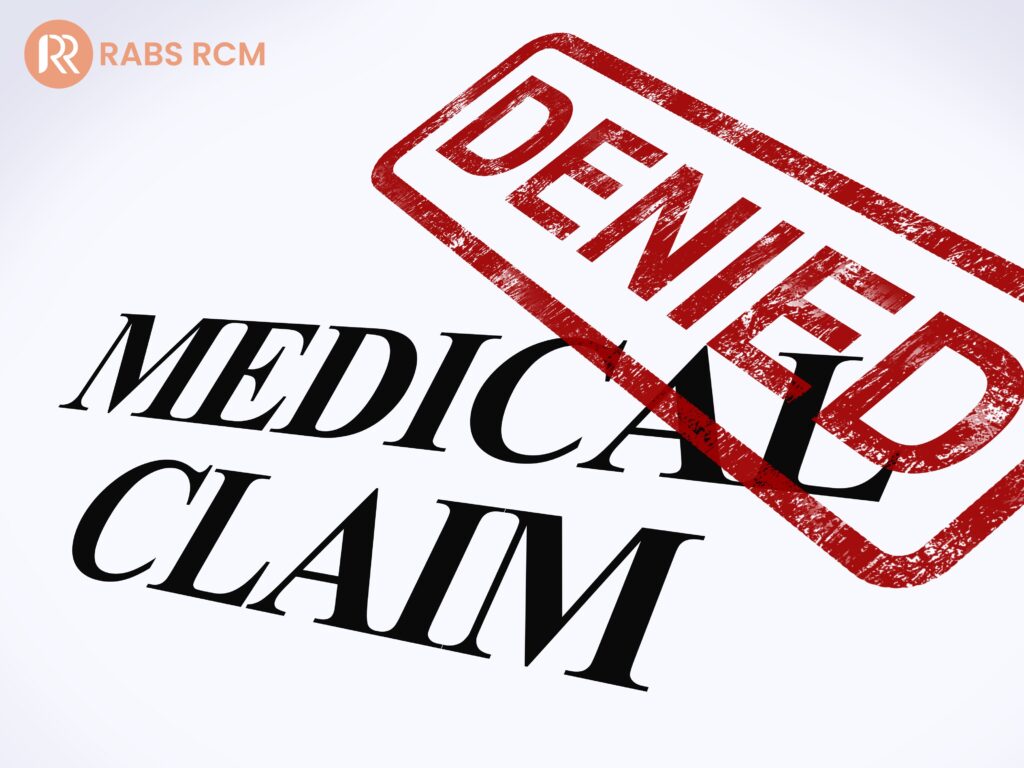Copyright © 2022 Rabs-RCM. All Rights Reserved.

Tips to Avoid Common Mistakes Resulting in Claim Denials
Claim denials can be a frustrating and time-consuming experience for medical practices and healthcare providers. A denied claim can lead to delayed reimbursement and decreased revenue for the practice. In this article, we will discuss common mistakes that result in claim denials and provide tips to help you avoid them.
Incomplete or Incorrect Patient Information
One of the most common reasons for claim denials is incorrect or incomplete patient information. This includes incorrect patient name, address, or insurance information. To avoid this mistake, ensure that your staff thoroughly checks and updates patient information at every visit. This information should be verified and updated in your electronic medical record system.
Incorrect Coding
Incorrect coding is another common mistake that leads to claim denials. This may include using outdated codes, incorrect codes, or incorrect codes for a specific diagnosis or procedure. You can tackle this mistake by making sure that your staff is properly trained in coding and stays up-to-date on coding changes. You can also use coding software to help ensure that your codes are correct.
Missing Documentation
Another common mistake is missing documentation. This may include missing signatures, missing medical records, or missing diagnostic codes. Make sure that all necessary documentation is completed and included in your patient’s file. Doing so there will be fewer chances of mistakes to happen.
Lack of Prior Authorization
In some cases, prior authorization is required before a procedure or service can be performed. If prior authorization is not obtained, the claim will likely be denied. obtaining prior authorization for all procedures that require it and keeping a record of the authorization in your patient’s file will likely minimize the chances of mistakes.
Timely Filing
Claims must be submitted within a certain timeframe, or they may be denied. To avoid this mistake, make sure to submit claims as soon as possible after the service has been performed.
Incorrect Billing
Incorrect billing can also result in claim denials. This may include billing for services that were not performed, billing for services that were not covered by the patient’s insurance, or billing for services that were performed by an out-of-network provider. By making sure to properly bill for services and to verify that all services are covered by the patient’s insurance, you can decrease the risks of mistakes.
Unbundling of Services
Unbundling of services occurs when multiple services are billed separately instead of being billed as a package. This often results in claim denials. To avoid this mistake, make sure to bill for services in a bundled manner when possible.
Lack of Medical Necessity
Claims may also be denied if the services are not deemed medically necessary. When you will make sure that the services you provide are medically necessary and are supported by the patient’s medical records there are fewer chances of committing mistakes.
By following these tips, you can help reduce the number of claim denials and increase your chances of receiving reimbursement for services rendered. It is important to stay informed about changes in insurance policies and regulations and to keep your staff properly trained in order to avoid these common mistakes.
conclusion
In conclusion, claim denials can be a major source of frustration for healthcare providers. By avoiding these common mistakes, you can increase your chances of getting paid for the services you provide. Stay informed, properly train your staff, and stay organized to help reduce the number of claim denials.

- Our seamless and streamlined efforts, experience, as well as commitment to our clients, all come together to provide both you and your patients with a remarkable experience to remember.
Contact Us
- 2612 62nd St NW Rochester MN 55901 (USA)
- (507) 262-4566
- info@rabs-rcm.com

